#MeToo. #BLM. #FridaysForFuture. #BeTheChange.
These hashtags have floated across millions of screens in momentous hours, traveling across the world with nothing but three simple clicks. Televisions blast headlines of social media movements, shedding light on topics previously unseen. Undoubtedly, thousands of people will press that repost button, tuck away their phone and feel the instant satisfaction of claiming themselves the character of a publicly benevolent figure — #IAmAnActivist.
But how much can we truly beg to understand through a glowing screen when the digital pulse of social justice beats in 280 characters or less?
As we evolve into a modern-day perspective of the world, insurmountably fueled by ever-changing technology, the invaluable price of time causes disproportionality between the sources we use for information. When new information is released every minute, it is increasingly unfavorable to spend hours poring over various news sources instead of quickly scrolling through social media. As the amount of social media content related to news topics pushed on explore pages rises, gathering large audiences to tune in, the accessibility it offers in receiving information and opinions is becoming heavily abused. With this phenomenon comes a rising issue of a lack of transparency — in another sense, a method of appeasing pieces of the news to align with the values of a viewer demographic.
While experts and analyzers of such social abuse may be able to see this clearly, it is much less revealing to the common social media user’s eye; this superficial assessment of the world’s current events causes fights for social justice to become reduced to what is trending on the media at the time. Social media activism often deceives us from an understanding of who truly needs standing up for. In other words, seeing the extensive ‘research’ and opinions of various organizations pop up on our feeds, advocating for change under the pretense of several little hashtags, can easily make us believe that we are changing the world for the better by reposting.
Therefore, this increasing phenomenon of social media activism, the swift double-edged sword of contemporary social justice, requires an omniscient analysis of not only the power of justice but the efforts of democracy as we know it. After all, to be a true activist, it is imperative to know what you are acting for.
Where’s the paperboy?
To analyze the initiation of this newfound media activism, it is important to contextualize the process by which it grew: the degradation of the newspaper.
Over the past few decades, the decline of the newspaper has been a shockingly exponential one, quickly shifting the sphere of influence in daily global news towards the hands of digital media. In the year 2000, the total weekday circulation of U.S. daily newspapers was 55.8 million; by 2020, the rate had dropped to 24.2 million. With the growth of the internet, the speed, global reach and accessibility of digital news deeply overwhelmed any favor towards print media. In fact, today, about 70 million Americans are estimated to live in a county without a local print news organization.
This may seem of no concern to an age where everything is electronic anyway; however, the effects of this phenomenon are drastically impactful to this generation’s news consumption. As media news expands, particularly social media news, the availability of information has grown to a point where the matter of fixation is not finding news, but finding it fast. The competitive nature of immediate news has fostered a space for various opinions, sometimes fact-based but oftentimes not, to be spread; the justification for believing these opinions, rather than accuracy, can often be their timeliness. The loss of the daily paper, or even television news, reflects how we grasp a surplus of information in the modern age.
“Because there is a race now to be first with information, it does cause people to be less careful; whoever drops the bomb first, whoever gets the story out first, they get the most views [and] clicks. It’s a race. Twenty years ago, the news used to come on in the morning, at five in the afternoon and at 10 pm at night, so you just had to make a cycle. You had plenty of time to vet your information and make sure it was accurate, whereas now because news is immediate all the time, it’s a race to whoever can get it out first. That can lead to more errors in reporting,” business teacher Paul Schwent said.
That is, with the overwhelming amount of information we are provided with each day, the news has become less of a source to form opinions and more of a source to find opinions. With paper news, a correspondent could find proper primary sources, understand the facts of the topic and write an article that included a bigger picture of the event; depending on how thoroughly researched their information was, they could end up with more recognition or praise than competing newspapers. These articles held less opinion, leaving room for the reader to interpret current events within their political account. But with quick-paced media journalism came a need for some other form of distinguishment: purposeful opinion.
“All voices are invited into the ‘public sphere’ because of social media. In layman’s terms, the ‘public sphere’ is just a place for our voices to be heard. In that way, [social media] has fulfilled the ideals of American democracy,” history teacher Kevin Doherty said. “What the early generations of Americans valued though, more so than our current generation, is the ability to interpret information. The individuals [who] founded our nation were some of the most literate people the world has ever seen. It’s now a fact that we are less literate in 2023 than, for example, those in New England were at the end of the 1700s. We ought to celebrate the access that we have to information, the ability for people to have their voice heard, but our alarms should be raised by the fact that, generationally speaking, we have lost the ability to read, think and interpret for ourselves.”
Therefore, the space meant for faster information has transformed into a space that features broad levels of opinion based on a competitive nature. It is through this change that social media has become a stronger platform for activism; with so much information coming out so fast, each group has to find a way to incorporate their own message into their posts revolving around current events. But this incorporation of activism into social media is its very downfall: because it began as simply another platform on which to share current events, the lines between news and opinion can be easily blurred.
“[Social media] can be very helpful for immediacy. You may see a video of what’s going on in Gaza right now or you may get a video from a protest, and that’s very beneficial,” history teacher Melvin Trotier said. “But the caution always is, on social media, are you falling into the echo chamber [where] that’s the majority of what you’re gonna see? Challenging that idea that there might be more than one viewpoint, or there might be more to the story than you’re getting from just a 30-second video clip, becomes more difficult.”
As the effect of social media on our news becomes more pertinent, it can be found that this concept of the “echo chamber,” a phenomenon where a platform surrounds a user with information targeted to one political viewpoint, becomes most impactful. And it is in the severe, yet not uncommon, cases that this narrow-minded view reflects itself under the cover of the word ‘activism.’
Social justice in social media
Activism is an essential piece to the movement of our society, demonstrating the core values of a democratic free state. Therefore, it is not reasonable to prove that every side of activism within social media is bad. Because of social media, our world is now more connected than ever before. Various movements, such as #MeToo and #BLM, have given a voice to marginalized communities, and more importantly, connected people across continents behind one cause.
“Activism is one of the most important pieces of democracy. It’s how citizens express their displeasure or what they want the government to do,” Trotier said. “From an activism standpoint, [social media] allows more people with the same views to connect and create a bigger movement. Using social media creates an immediacy that you didn’t necessarily have before: you can report with a video on Tiktok or Instagram from a march or a rally, or you can record an incident that might become a focal point for a rally or a protest later on down the line. There is an effect of documenting things and broadcasting things that we’ve never had an opportunity to see before.”
The accessibility and reactivity of social media have also provided a reasonably strong space for activism to thrive, granting more people the opportunity to share political viewpoints without as much physical effort. With just a few clicks, it can seem like anyone can be an activist.
“Social media is really good for raising awareness because, honestly, if there wasn’t social media, I probably wouldn’t know about all these issues going around in the world right now. So social media is really good about telling me, ‘this is happening and this is important,’” sophomore Yein Ahn said. “Along the lines of activism, it can help you know that an issue is happening and it’s impacting a lot of people and that’s why we need to act. It’s also easier for us to get involved, too, because it’s so easy to repost the video or share it with social media, so it’s less burdening than speaking out in person sometimes.”
However, this conception of social media expression as a category of activism has, like most things, pushed itself to a point of misuse. Rather than motivate the spread of voices and the sharing of information, manipulation has become a particular factor in social media activism; behind a screen, a user’s underlying motivations are not as simple to detect. Moreso, allowing a place for free expression without consequences often means that misinformation will be used to manipulate followers into believing one viewpoint.
“Social media has allowed for more than just individuals, but institutions, different groups that have much influence and power of money, to manipulate social media so that people are receiving the agenda of another party rather than the truth of what is happening in the world and our country. Social media has allowed more access, but with that access has come a greater influence from individuals that have their own interest, rather than simply putting forth facts and data,” Doherty said.
Especially in recent months, social media activism has become increasingly pertinent, with cases such as the Russia-Ukraine war and the Gaza Strip conflict demanding reactions online across the world. A recent trend among TikTok users, in fact, has been the use of filters to raise awareness and money for social justice causes. Made by TikTok creator Jourdan Johnson, money is meant to be donated to Gaza after 200,000 uses of the filter. Those supporting efforts of defense for Palestine have posted videos using such filters to promote their beliefs. However, the tangible results of playing the filter game have not yet been distinguished as charity for those affected in Gaza. While it does work to spread awareness of the issue, it is difficult not to wonder if the filter will ever actually induce some change or help survivors of attacks.
“While social media is great for awareness [and] knowledge, it can become a trendy thing, like ‘I better click on this because I want to look like I care about the Middle East.’ It can invent false activism. You may even care about what’s going on, but if you just click on a hashtag, are you really accomplishing anything?” Trotier said.
These consequences of idolizing activism on social media can be seen with a scroll through the comment section of an influencer on any platform. Another variant under the umbrella of social media activism is ‘influencer activism,’ where several internet personalities tend to broadcast their opinions on current events without proper information to back it up. While this specific term pertains to influencers, it can apply to any social media user online.
Within the past few years, the demand for reactions from influencers has grown, with the public often pressuring users with mass followings to take a stand on a political matter in hopes of aligning more people with their viewpoint. Through this fixation on influencer activism, the public can get side-swept by proving that influencers are either morally “good” or “bad” people based on their expression, easily redirecting the focus of a cause to tweets and posts rather than truly fighting for the changing of policies or the representation of minorities.
“We certainly tend to look at each other through the lens of our lives on social media or the internet, and so we tend to label each other or put each other in a box and oversimplify the set of values or beliefs that one person might have. We think that we know them or we think we understand their own platform, and that’s a dangerous thing, to try to label someone based on what we perceive on social media or on the internet. I don’t think it’s a bad thing to try to get to know people more based on what’s offered on social media, but if we’re going to claim that we know each other, we must do that through a personal relationship, not just one that is on social media or online,” Doherty said.
From clicks to concrete
A viable option, instead of following this contended path towards ignorance of true activism under the guise of social media activism, is to prioritize physical action over the concept of ‘hashtag activism.’
Hashtag activism is a trend referring to the use of Twitter (or X) hashtags as a form of internet activism. Examples like the Me Too women’s rights movement and the Black Lives Matter movement fall under the scope of hashtag activism, cases where a particular event causes a spike in reposts about social justice causes, only to end up losing more and more supporters after the ‘trend’ has passed. For #MeToo, it was actress Alyssa Milano’s urging of victims of sexual harassment to share their stories on social media. For Black Lives Matter, it was the horrific death of George Floyd through police brutality. These cases sparked outrage across the nation and caused many to speak up, sharing their voice, but the short-lived glory of the cases was sadly just another moment passing over as a trend. While their platforms did gain awareness, these retweets could not be as impactful to the community as the true activists behind these platforms, the leaders behind #MeToo and Black Lives Matter, who went out and fought and protested for policy changes.
“It is easier to have a voice on social media. The downside is that it’s almost easier to have your voice drowned out because then there are so many voices. It might have more of an impact if you got a group of people together and physically walked for a cause, versus just expressing your viewpoint on social media where it just goes out to the universe and doesn’t necessarily have the impact that you might have in person,” Trotier said.
With these passing trends of ‘activism’ comes a deeply penetrating issue: the trivialization of injustice. Promoting an influx of support behind a cause in a similar manner to any other internet trend increasingly lowers the importance of each fight. Moreso, with the satisfaction of being an ‘activist’ behind each person reposting a tweet, comes the degradation of a true activist’s efforts. Anyone can repost a cause and portray themselves as a justice worker but continue not to reflect their projected equality in their actions. Even worse, anyone can post any information they like on social media, whether it be true or not, and then protect themselves under the name of a hashtag movement. No matter the positives of social media activism, we, as a society, are losing every bit of moral democracy as we continue to deteriorate the concept of activism into clicks on a screen.
“Social media is generally degrading towards the causes of different activists’ agendas. If we take activist movements on the left and the right, the conservatives and liberals in our own nation, we can point to multiple examples that have been hijacked and manipulated by people from the outside who didn’t necessarily have the same goals that the initial founders of that activist organization did,” Doherty said. “It can be dangerous, too, because in the past, the leaders of a certain organization had control of that organization. Now, as soon as you make your organization viral, you’ve essentially permitted anybody to tag themselves as a part of your organization and to spread their own agenda or their platforms. What originated as maybe a worthy cause has been convoluted by people that had no business being part of that in the first place.”
And thus the question is raised: if social media is so necessary to awareness, how can we bridge the gap between hashtags and protests? How do we go from clicks to concrete?
In actuality, some movements of our current world do utilize the base of social media to create proponent impact. Recently, the union group Starbucks Workers United took a media-based approach to pursuing their standpoint on the ongoing Gaza conflict. Last month, the worker group was sued by the Starbucks corporation after expressing solidarity with Palestinians through a post on X (formerly known as Twitter). The result of the event, though, demonstrates an outcome where social media activism influences direct activism. After the union group was sued, the public began to show their support for Starbucks Workers United through a nationwide Starbucks boycott, massing to an amount of $11 billion in revenue lost. The group transformed just one tweet into a nationwide movement, simply using the determination and motivation to share their voice, demonstrating just how social media is meant to impact the world of activism.
In a slightly different manner, one of the most recognizable activist names, Greta Thunberg, began her journey to climate justice through protest. Only after she began her weekly school sit-outs, labeled Fridays for Future, did Thunberg begin her impact on social media. Posting photos of the weekly school strikes grew the motivation for other young activists to protest against the U.S. withdrawal from the Paris Climate Agreement, eventually leading to the indictment, once again, of the U.S. into the climate accord by the Biden administration in 2020. Today, Thunberg continues her fight against the climate crisis alongside millions of young activists worldwide, marking her path on the world — not simply by reposting, but by getting out into the world to change the path of her future.
It is through cases like these that social media activism forms a true impact on our communities. A hashtag can become a physical movement, with just the effort and determination of one voice. That voice is the way to pure democracy, to a world of the people — when we force change to happen, it is a much greater guarantee that change will actually occur.
“The Parkland shooting students from Florida organized themselves through social media and got everybody together for their cause. Then, they decide to meet, physically march and physically protest. The follow-through piece makes a big difference,” Trotier said. “The same thing will happen next year with the national election. I can’t tell you how many groups will go online and create hashtags, pro-candidate or anti-candidate, and the end result only will happen if people actually act on it and go vote or persuade other people to actually vote. That action piece, whether it’s you individually going to the voting booth or you going to join a bunch of other people for a march, that physical piece of it makes a massive difference.”
Land of the free, home of the young
Therefore, it is clear that true activism is necessary for our democracy, despite the changes in activism that our society has favored as technology advances. However, in an effort to keep up with ever-present changes in the modern world, a particular absolute as a form of remedy is difficult to decipher. Should we go back to the days of sitting in the living room, reading the daily newspaper every morning? Not necessarily. Must we delete all social media and never utilize it for activism purposes? Of course not. In the end, the key to well-rounded political stability is balance, and it takes form in more ways than one.
“If generation after generation has these longings to engage and be connected, and the predominant way to do that is through social media, we certainly don’t want to tell people [not to] have social media,” Doherty said. “We want to try to make it a norm for social media to be used in a more healthy way, rather than the norm right now that is for social media to be used in an unhealthy way.”
Social media abuse is a subdued issue, in part because of its commonality. Most platforms are aware of the matter, running fact verifiers and content warnings as much as possible, but it does not stop from the spread of information through the word of mouth of influencers. In this case, the best thing to be done is for the user to be accountable for media integrity and accuracy.
“It’s more important than ever to check your sources, make sure that what you’re hearing is true and check more than one source. It’s not a good idea to spend your time in an echo chamber, listening to people or following people on social media who agree with everything you think. It’s good to challenge your beliefs sometimes,” Schwent said.
Despite the actions we can take to attempt an unbiased approach to social media news and social media activism, it remains essential for activism to be implemented in physical ways too. Social media can only spread so much information; without true action, the justices fought for can never be resolved.
“Social media allows activists to share their goals, to share their platforms and their policies much more broadly, [but] it’s the responsibility of the audience to research and understand what the actual movements are proposing,” Doherty said. “When outside forces come in and try to manipulate and convolute it, the followers can do their own litmus test and say, ‘No, that’s actually not what this organization stands for. You’re speaking falsehood into that.’”
Most importantly, it is vital for the younger generations to grow up with detachment from social media activism at a certain level, and instead put forth their voice and experience into true purposeful actions. Senior Sophie Kucukkaya is an exemplification of the value in the voice of the youth. Through the efforts of the Advocacy Club, Kucukkaya and her peers have worked to raise awareness of high school student issues to administrators in power to change them. By effectively contacting and communicating with the school community, the Advocacy Club prioritizes action in their form of activism.
“Currently, we’re working on brainstorming ideas about the issues that the students in the school are dealing with, like AcLab: we don’t have much of it, it gets taken away for various reasons and it could be changed to have a more efficient use. There are issues where seniors and juniors have to come in for Spark, then come in for AcLab and then leave again. It’s leading to a lot of problems. So, we’re in the process of reaching out to the school officials and to other schools, like Parkway North, who have different AcLab policies than us, to see how we could also benefit from the same things that they’re benefiting from,” Kucukkaya said.
Past their physical efforts in contesting a fight against the lack of validation for the importance of student academic time, the Advocacy Club presents a blended view of activism. By implying both social media and concrete petitions into their plans, the club proves the claim that activism is, in fact, a concept of balance, and must include all realms of the community in an accurate portrayal.
“The use that we have for our Instagram is to get a lot of individuals to brainstorm the questions with us; a freshman might have a different thought than us as seniors, so getting a freshman’s idea on how they view AcLab is different. We want to get their ideas involved,” Kucukkaya said.
Similarly, as media manager of Diplomacy Club, Ahn has worked alongside her peers to form a space dedicated to students sharing their voices and opinions, in real-time. Through club discussions, Ahn has seen the opportunities provided with voicing opinions through a healthy, personal method, where conversations can be held in full with room for reasoning and support on various sides of a topic. The backstory of a person’s views can be incredibly vital to our general understanding of one another. It is through in-person discussions that we can break that screen barrier in hopes of forming a well-rounded opinion.
“[During] our first meeting, we went around the room and everybody said their ethnicity, and it was all very different. It really impacts the views that they have, and it’s interesting to see how these different cultures have different ideas on one same topic and to hear people who are more closely tied to these issues,” Ahn said. “If you’re talking about it peacefully, you can see the people who are being impacted and the people behind issues. But when it’s not useful, not a peaceful discussion, you can get caught up in just the topic and the statement — yes or no, agree or disagree —- instead of seeing the complex situations behind the issue.
The importance of Kucukkaya and Ahn’s efforts to lead their school into active discussion is most reflected in the rising number of youth who have an effect on the government of the United States. Through the shifting voter demographic, Gen Z is getting closer and closer to a level of dominance in the voting polls each year; now is the time to promote well-rounded education on matters before the generation can take action through political legislation.
“We vote the people who are making the international decisions into power, the ones who affect the problems in our world. It’s important that we, as the younger constituents, have a say within the democracy, because once you turn 18, you have that voting power. Even now, you have the power to be able to talk to the senators who are involved in current cases and to research the current foreign policy the United States has. The government has to listen to the social contract aspect of it: the government only exists because we let it exist,” Kucukkaya said. “You can either go into everything blindly, or you can learn about all these issues and say, ‘Why is this policy in place? Let’s put an end to this.’”
By engaging in these discussions at younger ages, people develop a level of political literacy that strengthens the civic basis of their opinions. Using that knowledge, results such as well-researched solutions, strategically planned movements and even informed posting on social media can be achieved. As those members of the community age into the role of civic voters, their background information helps to make educated decisions for the future of the nation.
“It’s important to [stand up] now, while we’re still growing and learning in school because once you learn something, it’s hard to change your view on it. When we learn to be more open to other perspectives from our teen ages, that helps us to be more open to different perspectives as adults when we grow up,” Ahn said.
Taking a deep dive into social media activism and how it has altered the balance of our world shows that voice is the most important part of a civil democracy. Whether it is on social media or not, depending on the dedication to activism, it takes every person to make a future where the path of government follows the path of the people. If it begins with anything, activism is plain political education: take in various sources of information, digest it into an opinion regarding your personal experience and get out there. Show the world what matters to you. In the end, no matter how many tweets are reposted or how many protests are marched, all activism begins with one power: a voice.
“It’s important for us to get a handle on issues that we have and speak out for them, because the issues that we’re facing are our own issues. People get sick and tired of seeing how others are getting harmed or how much they’re suffering, even if it doesn’t apply to them. Speaking out is likely to cause other people who don’t know about any ways to give to the issue to help out too. It’s really important that we do that, [not only] for our own problems, but also for bigger problems and bigger causes,” Kucukkaya said. “There’s no real point in complaining, especially if you can have a say in it and change the path of the issue for future generations to come.”

![Marching in front of Forest Park Avenue, protesters gather in support of the pro-choice organization Planned Parenthood after the controversial overturning of the Supreme Court case Roe V. Wade. Parkway West alumna Luisa Larinizi, former co-president of the Feminist Club, attended the protest in 2022 to share her voice on the matter. “I went because it’s an issue I care about deeply and I felt this was a way I could help and actively be involved. It is very important to stand up for what we believe in, and peaceful protesting is always a great way to achieve that,” Lazarini said. “It was incredible to see how many people came. Many gave speeches on their personal experiences with reproductive rights, [giving] me new insight on how many people are actually affected by the issue.”](https://pwestpathfinder.com/wp-content/uploads/2024/01/Untitled-design-1.png)

![Junior Fiona Dye lifts weights in Strength and Conditioning. Now that the Trump administration has instituted policies such as AI deregulation, tariffs and university funding freezes, women may have to work twice as hard to get half as far. "[Trump] wants America to be more divided; he wants to inspire hatred in people,” feminist club member and junior Clara Lazarini said.](https://pwestpathfinder.com/wp-content/uploads/2025/05/Flag.png)
![As the Trump administration cracks down on immigration, it scapegoats many immigrants for the United States’ plights, precipitating a possible genocide. Sophomore Annabella Whiteley moved from the United Kingdom when she was eight. “It’s pretty scary because I’m on a visa. When my visa expires next year, I’m not sure what’s going to happen, especially with [immigration] policies up in the air, so it is a concern for my family,” Whiteley said.](https://pwestpathfinder.com/wp-content/uploads/2025/05/DSC_0077-7copy.jpg)
![Shifting global trade, President Donald Trump’s tariffs are raising concerns about economic stability for the U.S. and other countries alike. “[The tariffs are] going to pose a distinct challenge to the U.S. economy and a challenge to the global economy on the whole because it's going to greatly upset who trades with who and where resources and products are going to come from,” social studies teacher Melvin Trotier said.](https://pwestpathfinder.com/wp-content/uploads/2025/05/MDB_3456-1200x800.jpg)



![Some of the most deadly instances of gun violence have occurred in schools, communities and other ‘safe spaces’ for students. These uncontrolled settings give way to the need for gun regulation, including background and mental health checks. “Gun control comes about with more laws, but there are a lot of guns out there that people could obtain illegally. What is a solution that would get the illegal guns off the street? We have yet to find [one],” social studies teacher Nancy Sachtlaben said.](https://pwestpathfinder.com/wp-content/uploads/2025/01/DSC_5122-1200x800.jpg)


![Making up a large portion of the film industry, many popular movie remakes and sequels have been released recently. Similar to film remakes, theater teacher Amie Gosset often uses play adaptations of famous movies for theater productions. “It’s challenging because people have an idea of what the film is, whether it’s an iconic film or one they really liked. [Consumers] come in with a preconceived notion of how the [film] should be. Then, [they] are either surprised because they like the new version or disappointed because it’s not what they’re used to.”](https://pwestpathfinder.com/wp-content/uploads/2024/12/DSC_0042-1200x801.jpg)


![Pitching the ball on Apr. 14, senior Henry Wild and his team play against Belleville East. Wild was named scholar athlete of the year by St. Louis Post-Dispatch after maintaining a high cumulative GPA and staying involved with athletics for all of high school. “It’s an amazing honor. I feel very blessed to have the opportunity to represent my school [and] what [it] stands for,” Wild said.](https://pwestpathfinder.com/wp-content/uploads/2025/05/unnamed-6-1200x714.jpg)
![Red, white and blue, the American flag holds the values of our democracy. The fight that we once endured has returned, as student journalists and senior correspondents across the country are losing their voices due to government control. “[Are] the White House and [the] government limiting free speech [and] freedom of the press? Yes [they are],” chief communications officer of the Parkway School District and former journalist Elisa Tomich said.](https://pwestpathfinder.com/wp-content/uploads/2025/03/Untitled-design-14.jpg)
![Freezing in their position, the Addams Family cast hits the “rigor mortis” pose after cast member and senior Jack Mullen, in character as Gomez Addams, calls out the stiff death move. For the past four months, the combined company of cast members, orchestra pit, crew and directors all worked to create the familial chemistry of the show. “I’m excited for [the audience] to see the numbers, the music, the scenes, but I also just love all the technical aspects of it. The whole spectacle, the costumes, makeup and the people that put in the work backstage in order to make the show successful on stage. I’m excited for people to see and appreciate that,” Mullen said.](https://pwestpathfinder.com/wp-content/uploads/2025/03/DSC0116-1200x800.jpg)
![A board in the Parkway West counseling department displays pennants of selective universities. With a wide range of students interested in attending, it’s important that these schools have clear priorities when deciding who to admit. “[Washington University] had the major that I wanted, psychology, philosophy, neuroscience. That's a holistic study of the brain, and [WashU is] the only college in the world that offers that. That's the main reason I wanted to go; I got into that program,” senior Dima Layth said.](https://pwestpathfinder.com/wp-content/uploads/2025/02/Flag-1.png)
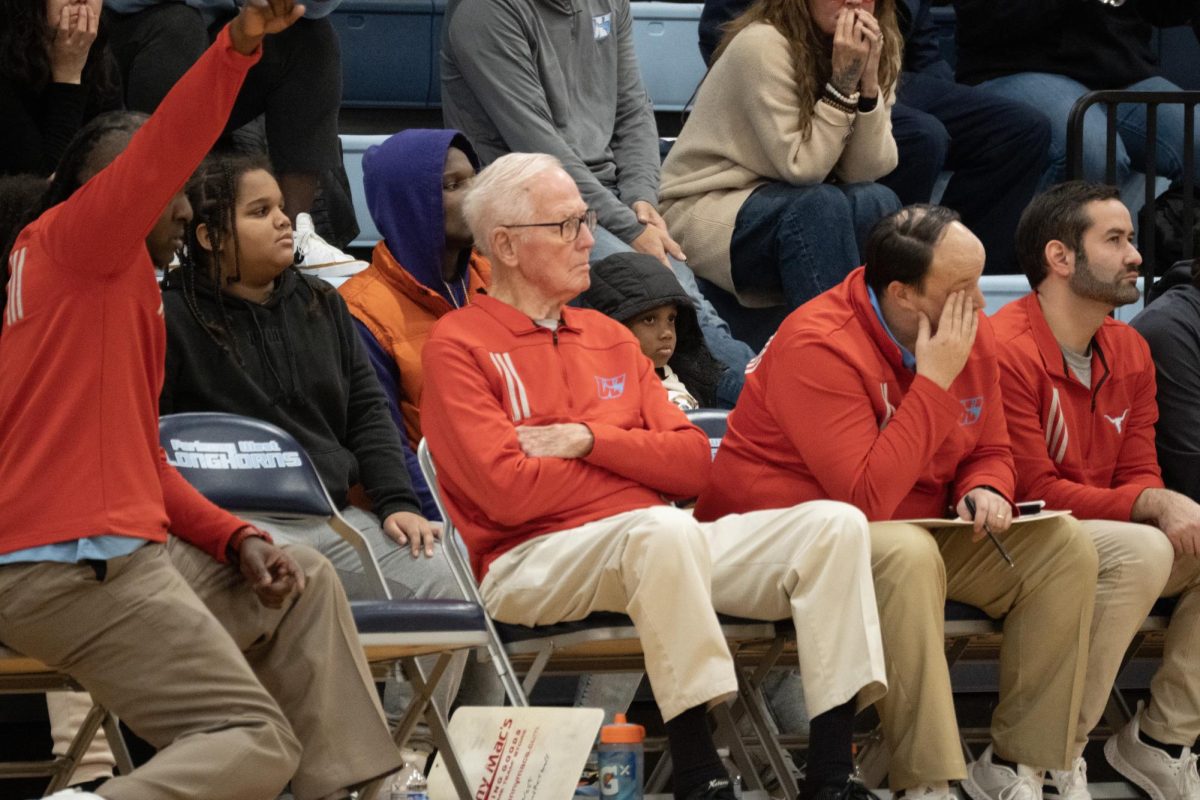
![Within the U.S., the busiest shopping period of the year is Cyber Week, the time from Thanksgiving through Black Friday and Cyber Monday. This year, shoppers spent $13.3 billion on Cyber Monday, which is a 7.3% year-over-year increase from 2023. “When I was younger, I would always be out with my mom getting Christmas gifts or just shopping in general. Now, as she has gotten older, I've noticed [that almost] every day, I'll open the front door and there's three packages that my mom has ordered. Part of that is she just doesn't always have the time to go to a store for 30 minutes to an hour, but the other part is when she gets bored, she has easy access to [shopping],” junior Grace Garetson said.](https://pwestpathfinder.com/wp-content/uploads/2024/12/DSC_0249.JPG-1200x801.jpg)
![Complex global supply chains supply the goods for everyday luxuries, such as the coffee at West High’s Blue Brew. Low tariffs enabled much of the prosperity of modern history. “Higher tariffs lead to higher costs. A tariff is a tax on an imported good, and someone has to pay for that tax, and typically that [will] end up impacting consumers,” economics teacher Rachel Money said.](https://pwestpathfinder.com/wp-content/uploads/2024/12/Flag-1.png)

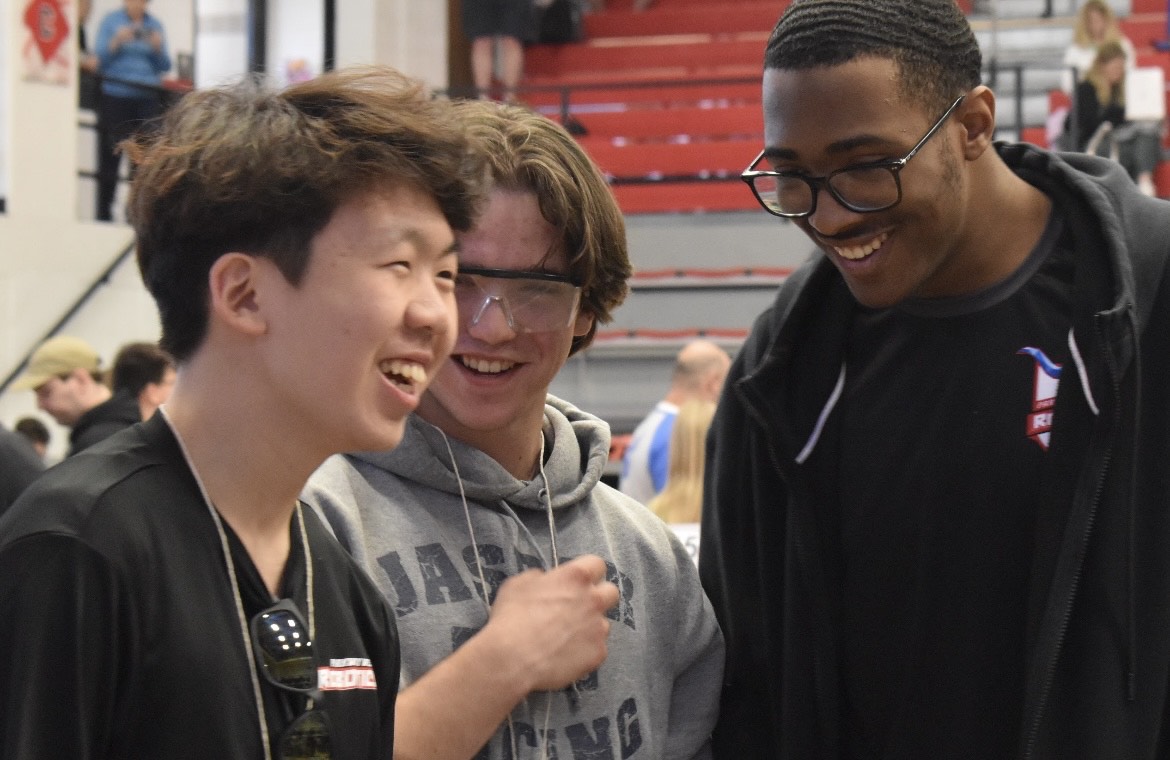
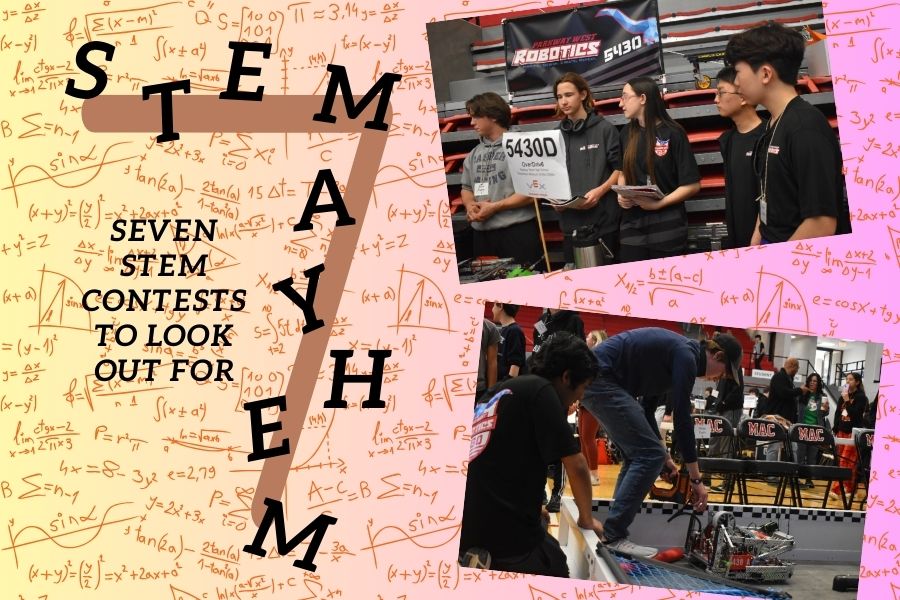
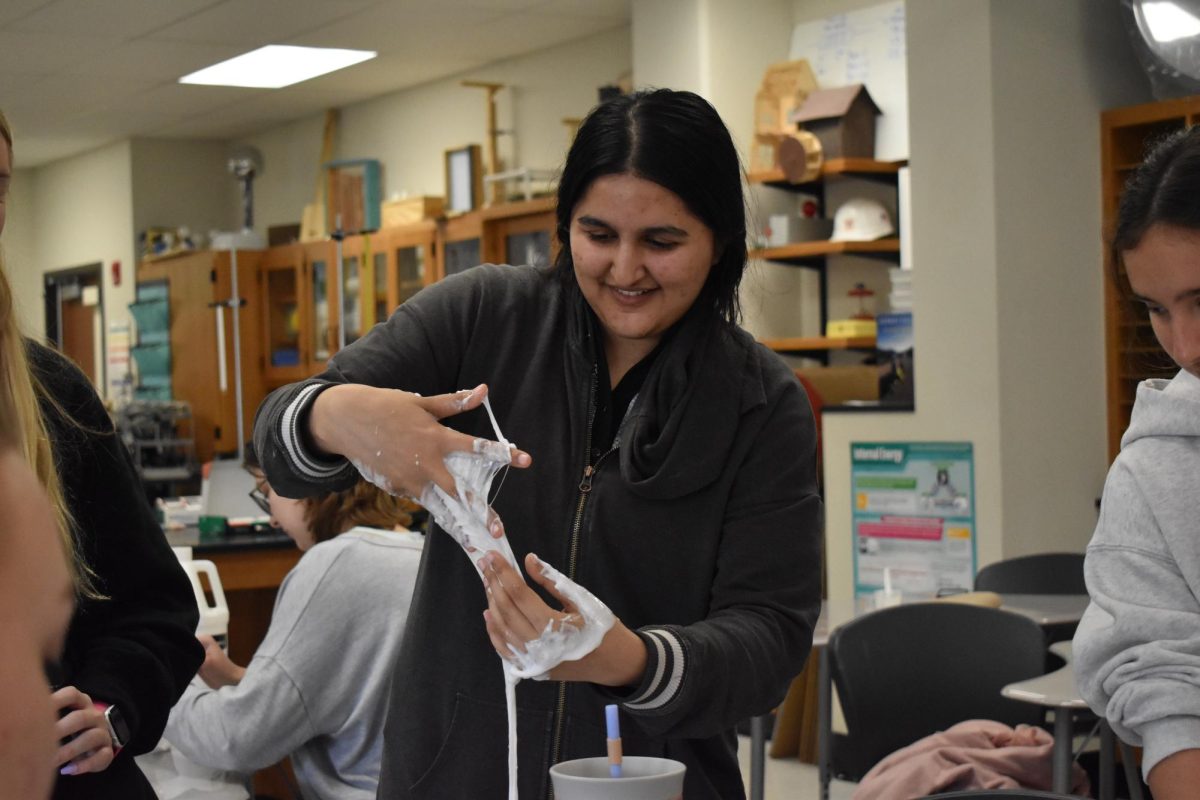
![Celebrities are inescapable in our day-to-day lives, constantly reminding us of whatever is newest in their lives. And for us on the receiving end, we find ourselves devoting time and effort to vie for just the tiniest sliver of their attention. “[Taylor Swift] is my favorite celebrity, and to me she means someone who is kind, smart and caring,” junior Swati Kumar said. “I feel connected to her and her music; I listen to her everyday and I find [her] very relatable.”](https://pwestpathfinder.com/wp-content/uploads/2024/01/Parasocial-1.jpg)

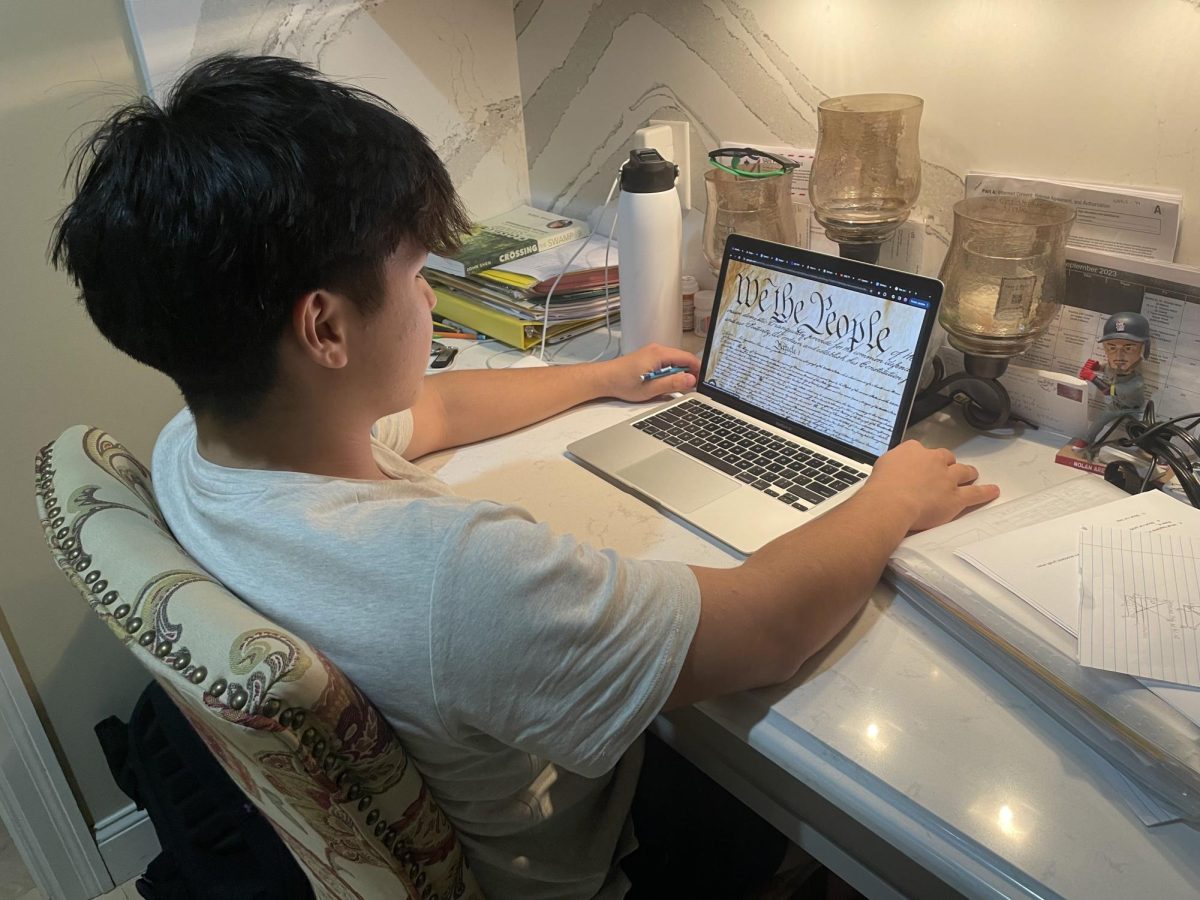
![Since its introduction and subsequent explosion on the world stage, social media has proven to be a detriment to the fight against misinformation and fake news in the media because of its targeted marketed tactics and abuse of unified communities. This being said, taking responsibility over what you consume online and deciding whether or not it’s true is crucial. “It’s important to notice that [the spread of misinformation through social media] is happening, and as a teacher, media literacy is so important to teach,” journalism teacher Lindsey Katz said.](https://pwestpathfinder.com/wp-content/uploads/2023/11/nov-editorial-feature-1200x800.jpeg)

![According to the American Academy of Child and Adolescent Psychiatry, in the United States, 90% of teenagers have used social media. In an increasingly digitized world, it can be difficult to figure out where to draw the line between your personal life and what you post. “The most influential people, your parents or your principal, would they be alright with what you were doing if they [were] sitting right next to you?” physical education and health teacher Jessica Wheeler said.](https://pwestpathfinder.com/wp-content/uploads/2023/10/IMG_9904-1-1200x799.jpg)

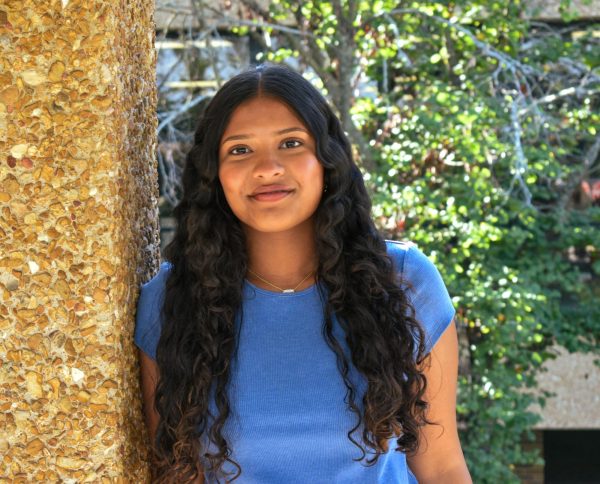
Adelaide Gleason • Jan 12, 2024 at 3:57 pm
A thought-provoking and incredibly well-written article. Great job!
Will Gonsior • Jan 17, 2024 at 9:33 am
The legend has returned
Samir Shaik • Jan 10, 2024 at 11:20 am
risa this story is insane i hope you know this is most well-written story i have ever read send this to lindsey right now if you don’t i will or else (lovingly of course)
Samir Shaik • Jan 10, 2024 at 10:37 am
Risa this article is actually insane I hope you know that like this is one of the most well-written things you have ever read show this to Lindsey ASAP or else I will. (lovingly, of course)
Will Gonsior • Jan 9, 2024 at 9:03 am
Well if *ichigan is gonna win a natty I suppose an awesome opinion article by Risa featuring Yein, Trotier, Doherty, and Sophie makes a great consolation prize. Thank you Risa!